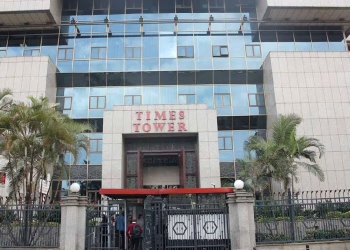Leaders are slowly nurturing hope for effective business overhauls aimed at achieving stability and regaining profitability. According to the latest Deloitte Africa Restructuring Survey, the level of pessimism among restructuring managers has decreased from 81% in 2023 to 75% this year. This shift reflects a growing acceptance of the current economic landscape and a demonstration of resilience amid uncertainty.
Jo Mitchell-Marais, the Africa Turnaround and Restructuring leader for Deloitte Africa, notes that while respondents may not feel optimistic, they have come to terms with the economic situation. “Companies are striving to operate despite these challenges,” she stated. However, she emphasized that genuine optimism is still lacking, particularly in light of Fitch Ratings’ forecast of real GDP growth at only 0.9% in 2024 and 1.3% in 2025.
The report indicates that informal turnaround mechanisms—whether operational, advisor-led, or management-led—are expected to yield the best returns for unsecured creditors, with 57% anticipated returns from advisor-led processes compared to 53% from management-led ones. A significant 64% of respondents foresee an uptick in business restructuring activity, focusing on operational adjustments and advisor-led initiatives.
In Kenya and East Africa, the number of financially struggling companies has surged, with the East Africa Restructuring Quarterly Bulletin for April 2024 reporting a 48% increase in cases. This rise is attributed to a volatile economic environment, particularly in Kenya, where the local currency has hit historic lows against the dollar amid global financial concerns.
Notable cases include Old Mutual facing liquidation due to a $3 million claim from Tropic Air Limited, and Resolution Insurance entering liquidation after unsuccessful rescue efforts. Additionally, Uchumi has paused discussions on its franchising model, essential to its recovery strategy, due to insufficient progress.
The trend of financial distress extends regionally and globally, evidenced by significant cases in the US, China, Europe, and South Africa. The Hong Kong court’s recent order for the liquidation of Evergrande, a major Chinese property developer, has sparked cross-border insolvency implications, emphasizing the global nature of these challenges.
Weak governance is the primary internal factor leading to financial distress, followed closely by cash management issues and inadequate financial controls. Early detection of potential restructuring triggers—such as missed debt obligations and stretched trade creditors—can be facilitated by consistent and transparent reporting.
Experts at Deloitte advocate for improved insolvency legislation, suggesting better protections for post-commencement financing, the establishment of specialized insolvency courts, and the introduction of unified Insolvency Acts.
Growing Hope for Business Restructuring Amidst Economic Challenges
Plugin Install : Subscribe Push Notification need OneSignal plugin to be installed.

















